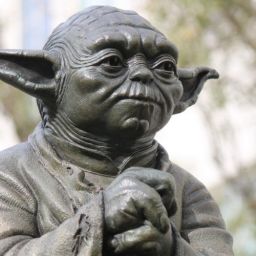I’m not one for trailer reviews, so I’m not going to go into a scene-by-scene recap of the Star Wars: The Force Awakens trailer. I’m sure anyone reading this site has already seen it 5 or 6 times already.
Along with the usual Twitter squee/analysis and ticket pre-sale complaints, a bunch of racists decided to trend the hashtag #BoycottStarWarsVII, because apparently the casting of John Boyega in a major role is equivalent to “white genocide.” Or something.
#BoycottStarWarsVII because it is anti-white propaganda promoting #whitegenocide.
— End Cultural Marxism (@genophilia) October 19, 2015
While on one level it’s tempting to chuckle and dismiss this response as simply ridiculous people being ridiculous, I do think there’s something worth interrogating here. With the news of JJ Abrams’ continuation of the Star Wars series was first announced, Attack The Block‘s John Boyega was one of the first actors announced as being cast, and when it came apparent that he was a major character in the first teaser trailer for the movie, the racist rumblings about “pandering to political correctness” first began. Never mind that there have been black characters in the Star Wars universe from the beginning. Were these guys simply ignoring the existence of Lando Calrissian and Mace Windu? Of course they were not. What’s going on here is a little bit more complicated than just blind rage at black faces.
A couple of years back I wrote an essay here about fandom and identity and the presumed “ownership” of fandom by particular groups. Here’s what I said then:
Fan culture can be more than just a social community, it’s also identity, a tribe of sorts, and often those identities are connected to cultural, racial, ethnic, gender, class distinctions and presumptions. Think of all the online comments from people talking about how diversity dilutes “their” fandom, the presumption that fandom identity is owned by certain demographic subsections of people and that race or gender is a distraction to a story, rather than another element of storytelling.
The #BoycottStarWarsVII “protestors” centered their identity as a Star Wars fan on the “hero’s journey” of men (Luke, Han, even Anakin) that look like them. Landos and Maces may exist, but they are peripheral, their stories were meant to support the journeys of the main, white characters. So when John Boyega appeared in the first scene of that teaser trailer, it was a wake-up call that the story was indeed going to be centered around him in some way.
The mere idea that this hero’s journey would be his was beyond the pale for these racists, who looked up to Han, and Luke, who aspired to be like them, because it’s inconceivable for them that a character like that, someone to aspire to, could ever be a black male. It’s the same kind of thinking that we see spring up in fandom conversations about why James Bond “shouldn’t be black.” Or Doctor Who. Or Captain America. You can go down the list.
For many, many years Star Wars fandom was perceived as a “white and nerdy” thing to be into. The people of color who have loved Star Wars this entire time have always known otherwise, and manage to find identification and kinship with these characters despite not looking anything like them. It says a great deal about the fragile sense of identity held by these Star Wars boycotters that a story centered around a non-white character is seen as akin to some sort of cultural genocide. Of course, the boycott itself, if it’s even carried out, won’t impact the box office juggernaut that is the Star Wars film series, but in watching the hashtag trend and its subsequent ridicule it was fascinating for me to see long-held assumptions about fandom, identity, and race crumble in real-time.


